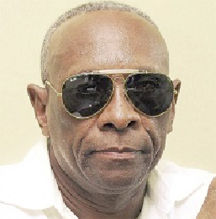(Jamaica Observer) Retired police officer and revered crime-fighter Reneto Adams wants the police force, which he served for 41 years, to be scrapped and replaced by another institution.

Adams, who retired in August 2008 at the rank of senior superintendent of police, said that things were so bad in the Jamaica Constabulary Force that the time has come for something major to be done to regain the confidence and hope of the Jamaican people.
With crime still the major concern of Jamaicans and acts of atrocities rampant across the island of approximately 2.8 million inhabitants, Adams believes that no further time should be wasted in the quest to set things right.
“It is the strong perception of the Jamaican people that we have a corrupt force. We should abandon this force and form a new one,” Adams, who turns 65 on July 11, told the Jamaica Observer in an interview yesterday.
“We should start a national recruitment of people we think we would want to be in that force. There should be thorough background checks of all individuals, because not enough background checks have been done on our present policemen.
“Those background checks,” Adams said, “should start from when the person was in primary school, coming straight through other stages of learning.
“If it is found that the individual was dishonest, untruthful and didn’t do his work while he attended school, he should not be recruited.
“Hundreds of policemen have been convicted, many of them are now on suspension, charged with corruption and acts of indiscipline,” Adams said.
His comments, however, come just over a week after Police Commissioner Owen Ellington shared with the country that the constabulary’s screening process has been enhanced to include areas of an applicant’s life that may have escaped scrutiny before.
“Debts, including student loan debt, are now examined, as are the activities of the applicant in cyberspace. The affidavit that a hopeful applicant is asked to sign now covers a wider array of potentially unethical behaviour,” Ellington said in an article published in the Sunday Observer on June 16.
Ellington also said that the National Intelligence Bureau flags potentially problematic applicants, who may be subjected to further screening, such as polygraph tests, before being admitted into training.
But yesterday, Adams insisted that the country has lost confidence in the police force and, as such, people are unwilling to divulge information to cops.
“We are not heading in the right direction; in fact, I am not sure we are headed in any direction. I have not seen a central, national comprehensive crime strategy. We have to mobilise the people … the private sector, the NGOs (Non-Government Organisations), and so on. Right now it’s a guess and go.
“Unlike a health strategy when you have outbreak of certain diseases wherein you find spraying, getting rid of old cans, rodents and so on, you don’t see that with crime,” Adams said.
The Government, he said, was the central element in fighting crime, and needs to mobilise the society behind it.
“All you hear every day is talk about forming a new squad and when it comes, it’s only an old one with a new name. The law says we must execute and we are not doing it,” Adams argued in support of the death penalty.
“All is needed is the setting up of a new force, give the police more support and change the law so that the police commissioner is voted for by the people and cannot be fired just like that.





